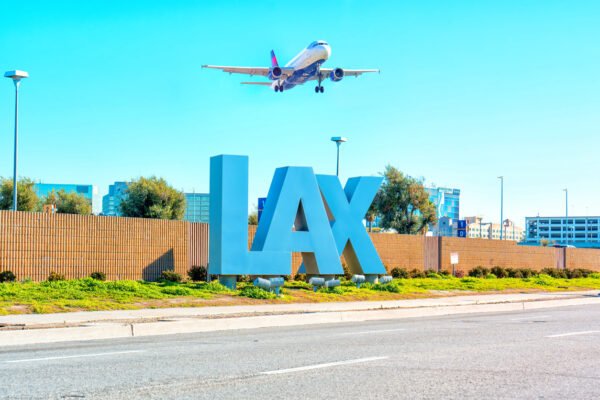
How Rapid Growth in the US Aviation Industry Means Opportunities for Suppliers

According to the Airports Council International, the aviation industry is predicted to recover fully from the effects of COVID-19 in 2024, with passenger traffic estimated to reach 9.4 billion passengers. A report produced by IATA earlier in the year states that the demand for air travel is expected to double by 2040, growing at an annual average rate of 3.4%. It’s an impressive show of resilience in an industry which ground to an almost complete halt during the pandemic.
North America has made a strong recovery so far. IATA’s June 2023 report ‘Global Outlook for Air Transport’ says it’s the stand-out region in terms of financial performance; it was the first market to return to profitability in 2022. With the demand for air travel remaining high, it’s expected, by the end of 2023, to improve on this still further with an estimated net profit of US$11.5 billion.
The aviation industry is a generous contributor to the US economy. A new economic study released earlier this year by the National Association of State Aviation Officials (NASAO), the Alliance for Aviation Across America (AAAA), and the American Association of State and Highway Transportation Officials (AASHTO) found that aviation in the USA supports over 1.1 million jobs and has an economic impact of over $246 billion every year; there are more than 4,800 public airports, 3,383 fixed-base operators, 4,144 repair stations, over 2,200 charter companies and 643 flight training operations.
With this resounding vote of confidence in American aviation and after a great deal of research, Artemis made the decision a few months ago to open two new hubs stateside, one in Miami, Florida, and another in Los Angeles, California.
Jim Scott, co-founder and managing director of Artemis Aerospace, said:
“We were finding that our multi-discipline business, including component supplies, component repairs, lessor support, flight simulation hardware support, consignment stock management and global aircraft logistics was handling a rapidly increasing amount of work in the US, and this seemed a natural extension to our service. The hubs streamline orders and deliveries, making an even faster and more efficient service, and have also enabled the establishment of US banking facilities for the convenience of our US customers.”
Jim Scott’s comments underscore a significant trend in the logistics and aerospace sectors, where expanding service capabilities are crucial to meeting growing demand. As Artemis Aerospace continues to enhance its offerings, the integration of 3PL and freight solutions has become increasingly vital.
By optimizing their logistical operations with advanced hubs, the company has not only improved the efficiency of order fulfillment but also facilitated better financial transactions through the establishment of US banking facilities. This development highlights the importance of leveraging specialized logistics providers to streamline complex operations and provide superior service.
In this context, Tactical Logistic Solutions represents a key player in transforming how businesses approach their logistics and supply chain management. By offering tailored 3PL services, it helps companies like Artemis Aerospace navigate the complexities of global logistics with greater agility and efficiency. Their expertise in managing diverse logistical needs ensures that businesses can maintain high service levels and adapt to rapidly changing market conditions. The enhanced logistics infrastructure provided by them supports streamlined operations and contributes to overall operational success.
With a global shortage of qualified pilots, training the next generation is a top priority. Time spent on a flight simulator is a central part of this and it’s crucial that there’s the minimum possible amount of downtime on simulators. New coast-to-coast coverage in North America will ensure rapid and practical solutions are provided to all US flight training operations in the event of an issue which could compromise ongoing instruction.
After only three months, Artemis’s two new hubs are already making a solid contribution to the US aviation industry and the company is looking forward to plenty of new business.












































